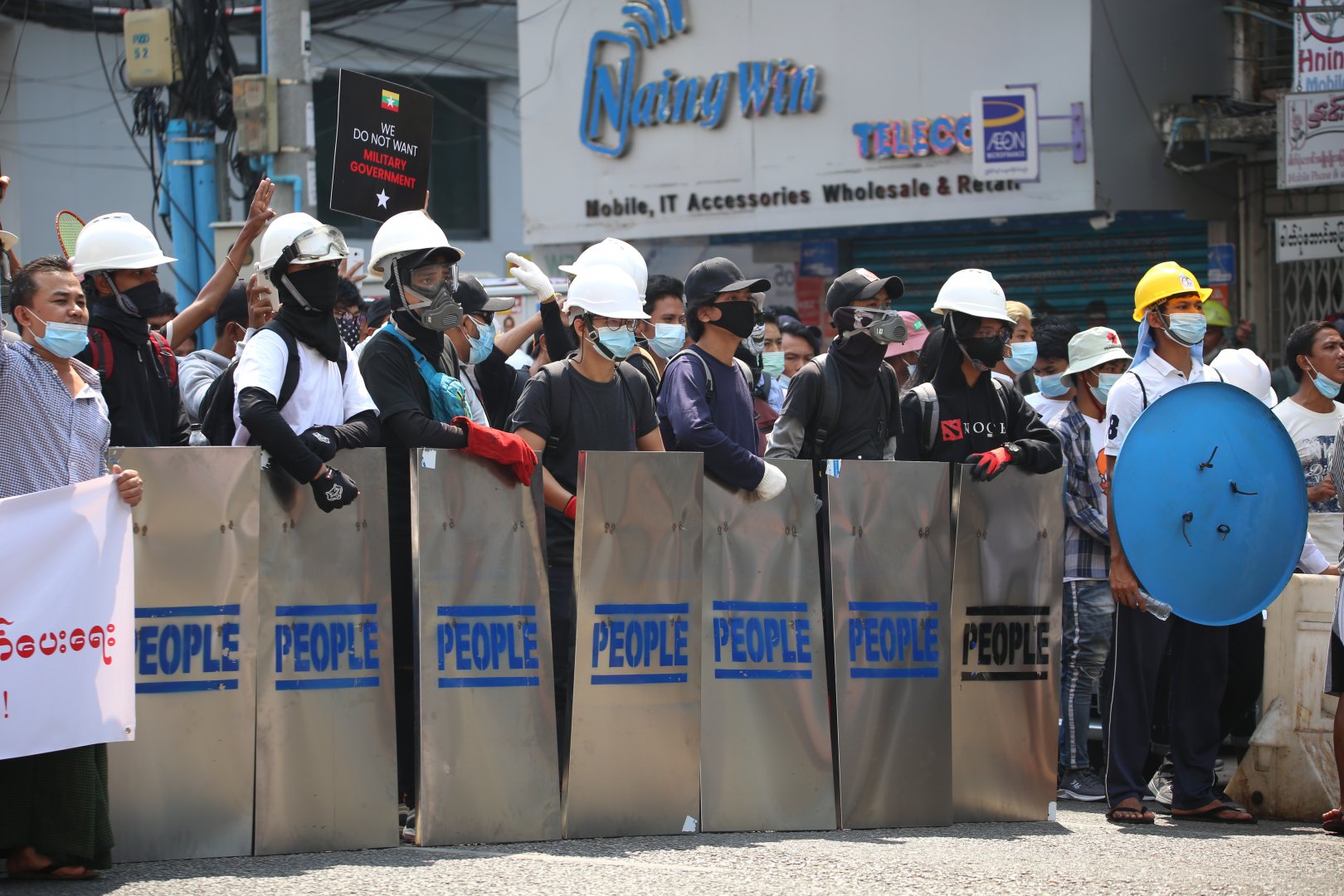
Photo by IMS.
Voices of women journalists in Myanmar
Ten years ago, media workers were predominantly men, and women’s voices were rarely heard in the media in times of crisis and conflict. This is no longer the case. Two women journalists share their personal experiences of working to provide information to the population during the current crisis
One of the key pillars of IMS and Fojo Media Institute’s work in Myanmar is to improve the working conditions of women journalists, conducting gender monitoring and trainings, supporting women journalist networks and promoting women’s voices, perspectives and expertise in and through the media.
A special project is our 1325 programme (named after the 1325 UN resolution that promote women participation in peace and security efforts) which focus on increasing the number of women journalists reporting on peace processes and conflicts as well as making stories from women in excluded groups known to the public and decision makers.
Two women journalists report their experiences of covering the current crisis in Myanmar. Journalist A is an award-winning freelance journalist. Journalist B is an editor at an online news agency. Due to the safety situation for journalists in Myanmar, out of precaution, we have chosen not to mention the names of the journalists in the article.
How do you work given the situation?
Journalist A: I know the potential dangers and consider that I could be the one who is shot that day, but I want to go to the demonstrations myself. One of my biggest challenges is that journalists are targeted. Not only from the police though. Sometimes journalists are blocked from accessing the demonstrations too and phones and cameras are grabbed to prevent live-streaming – demonstrators fear that identities and locations are revealed, but actually I want to cover the brutality against peaceful demonstrators.
I have a gas mask in the backpack and medicine in case of emergency. And a few contact numbers at the ready. I study the situation in the area and decide on an escape route too.

Two female journalists have recently been arrested and I have informed my family that I do expect to be arrested at any given time. My family know who to call if I am arrested and I have prioritized what information to delete or pass on to trusted others.
Journalist B: The Military Council has issued a directive that forbids the usage of certain words and naming them ‘coup government’, ‘military council’, so now, as I publish the news, I begin to feel unsafe and wonder if I will be in trouble. We need to finalise all reporting around midnight as the internet is shut down and I have started to feel a bit helpless as our office is known to everybody.
It is a dilemma whether we should wear helmet and jacket with press logos on when we’re out to cover demonstrations. If we don’t, demonstrators are skeptical of who we are and may think we are police informant. But if we do we risk being targeted by snipers and police as journalists are being targeted by security forces.
How about your economy and other concerns?
Journalist A: I have been a freelance journalist since Covid time. I have two teenage children. I am divorced. There has been no steady income since Covid, but I can still survive because my friends help me with loans.
My main concern is that my children will be traumatized if I am arrested at home. I saw the arrest of a journalist from Myeik, in the southern part of Myanmar, where police and army forcefully raided his house and shot many rounds. I worry about my children who will have no one to take care of them – more than I care about being killed. Another thing I worry about is that international news coverage will stop.
I want peace and I want my children’s future to be beautiful and bright and I also hope for full human rights.
I faced a lot of opposition to become a journalist – not suitable for someone from my background, but I overcame the obstacles and have now been a journalist for more than ten years. I will continue to be part of Myanmar’s struggle for press freedom.
Journalist B: I have not had any income since the coup. I normally manage on low-budget rice and curry shops. But they are now closed and so now I rely on support from my mom.
I have high confidence in Generation Z and their Spring Revolution. They have strong organizing powers and unity – they have everything but a gun.




